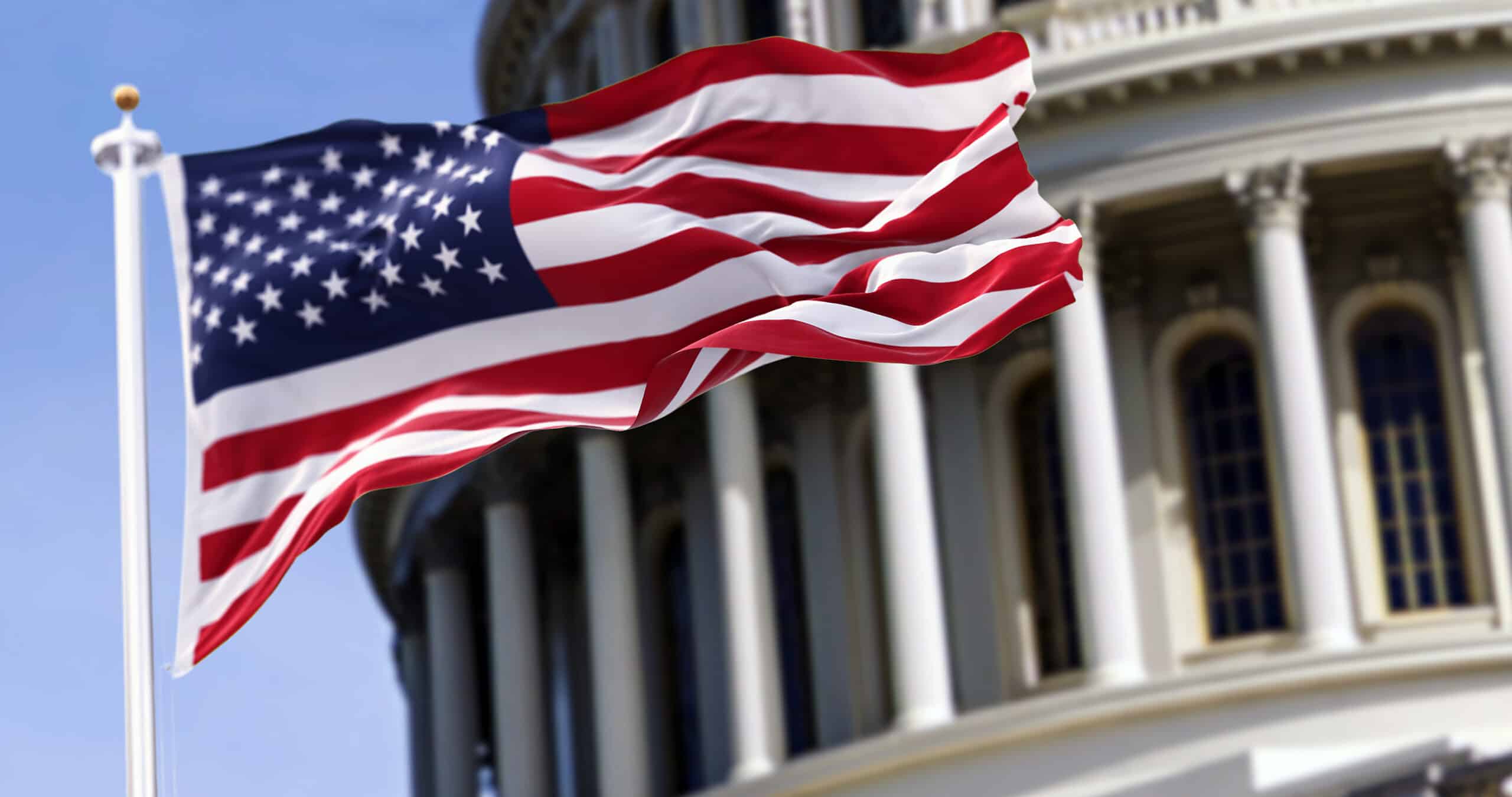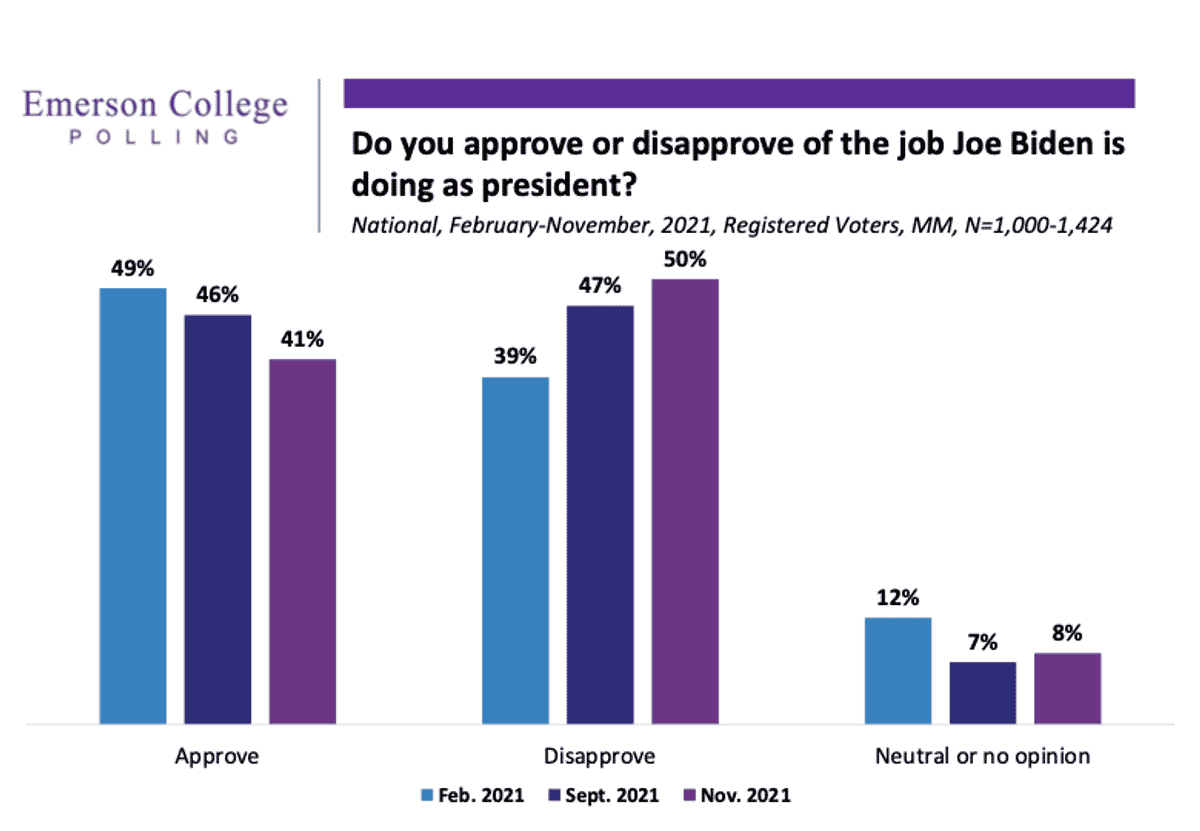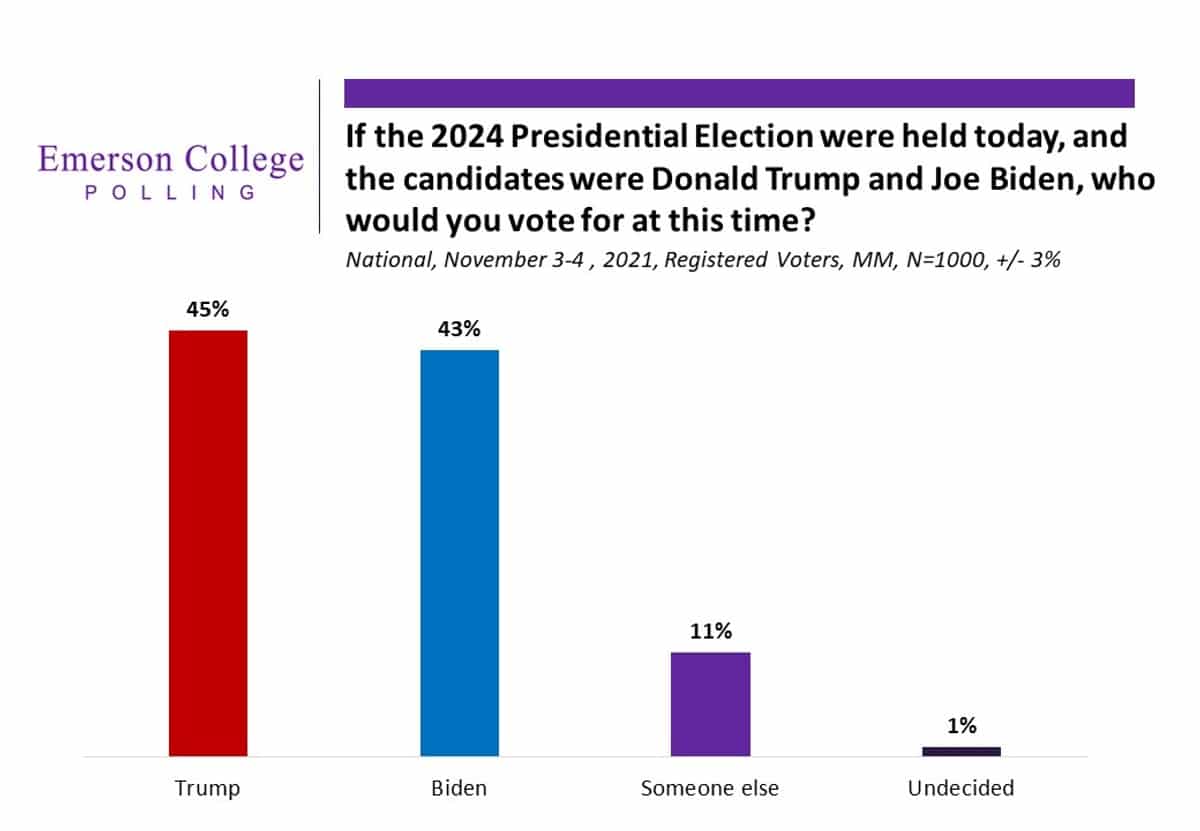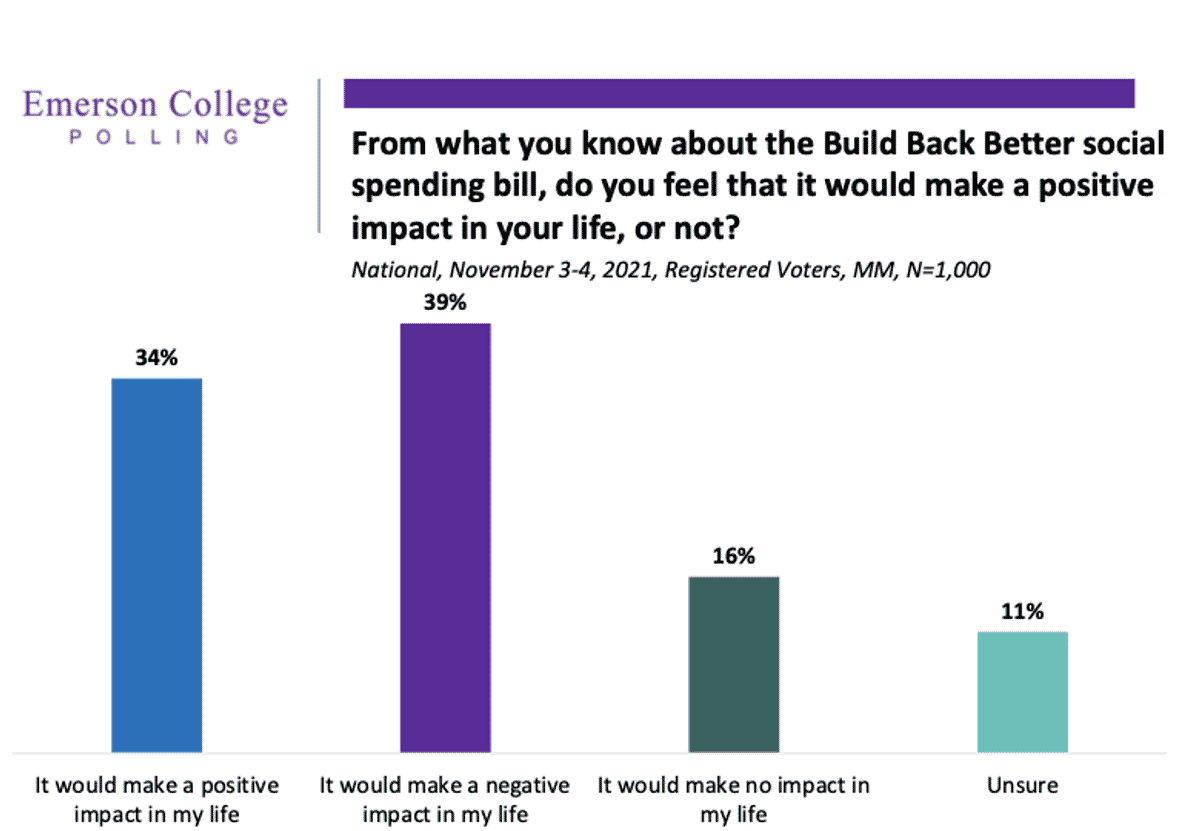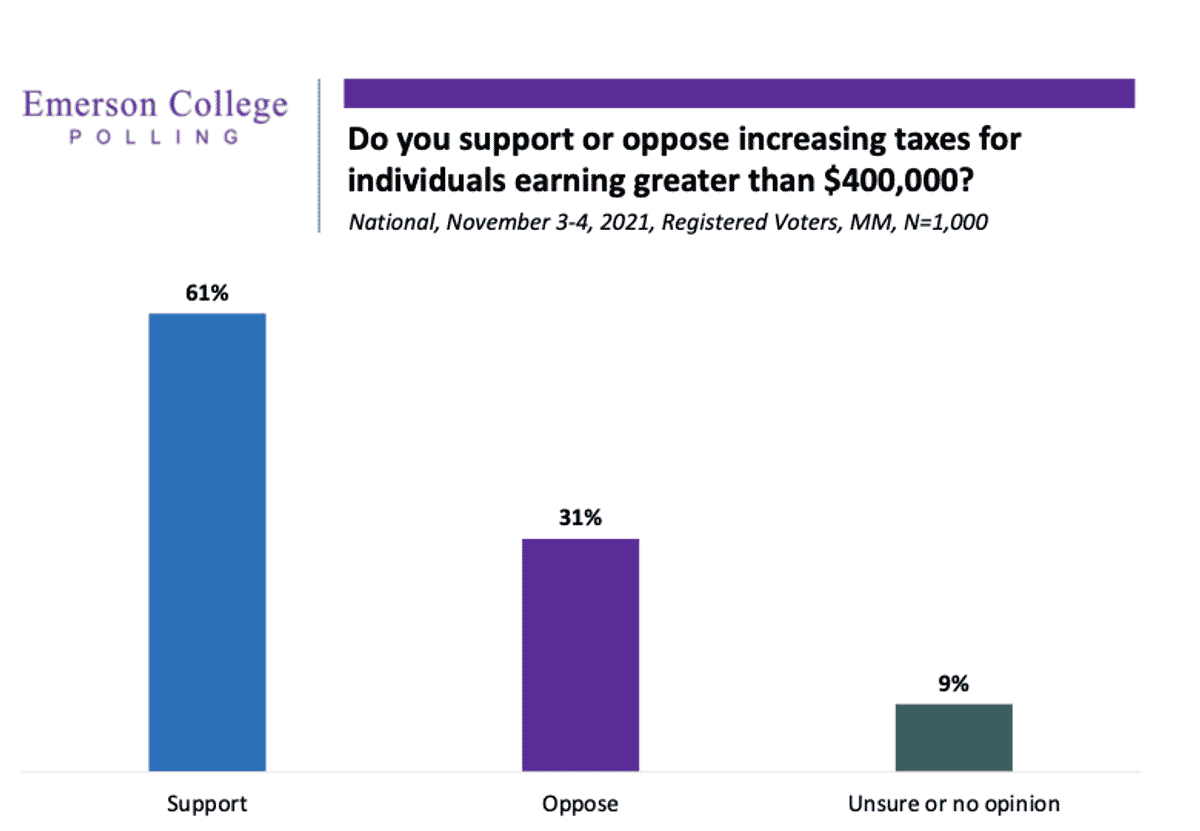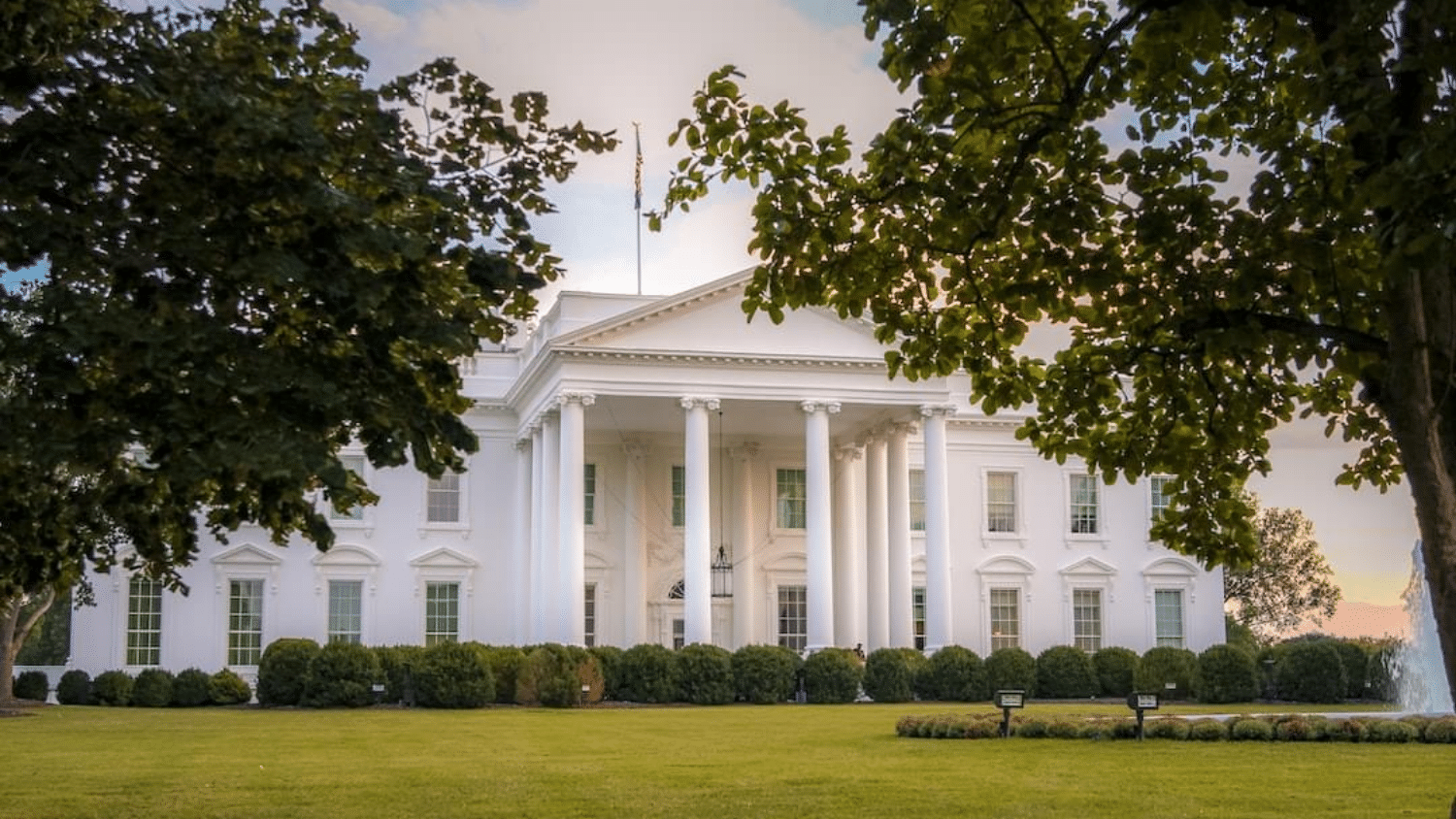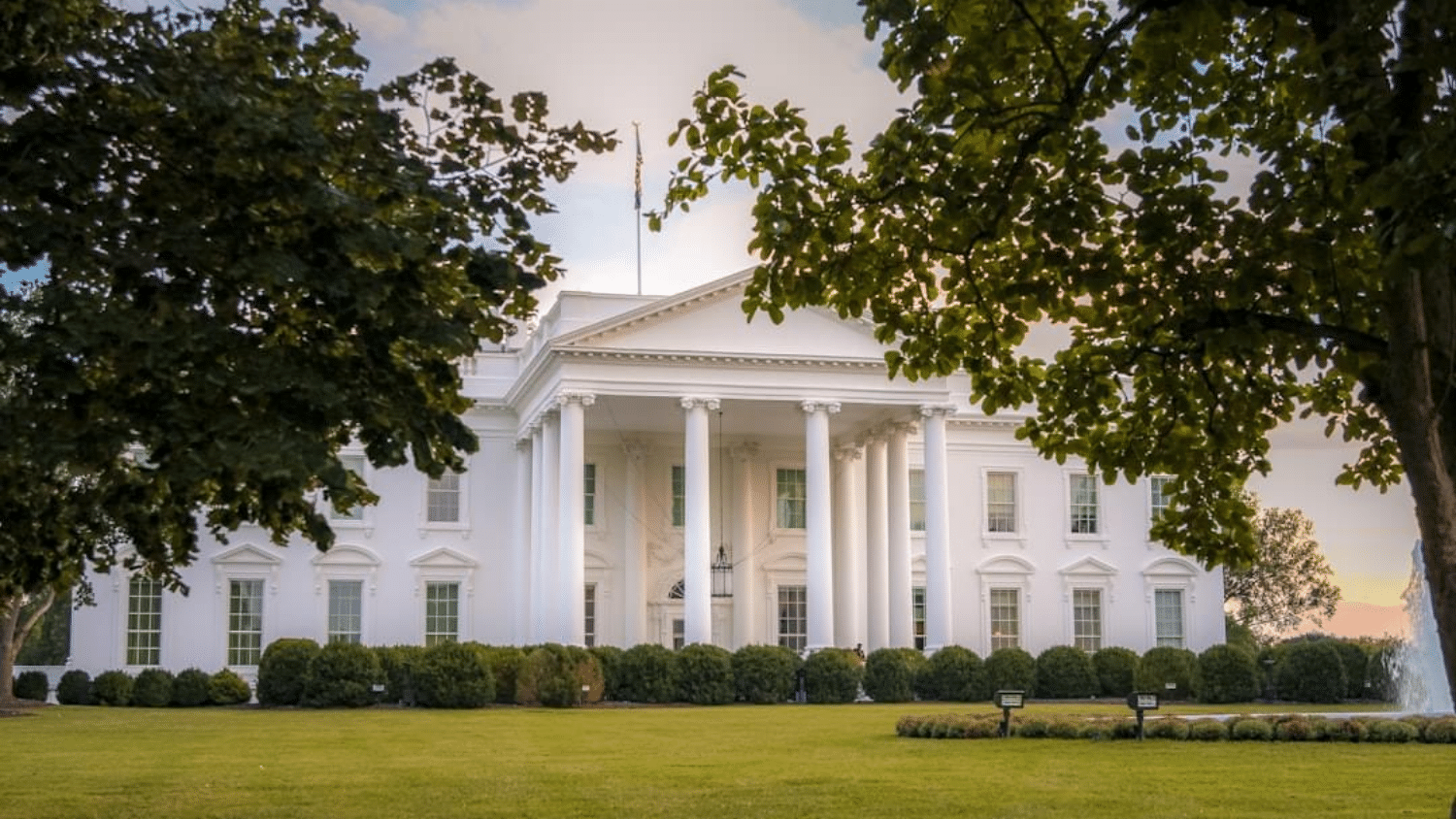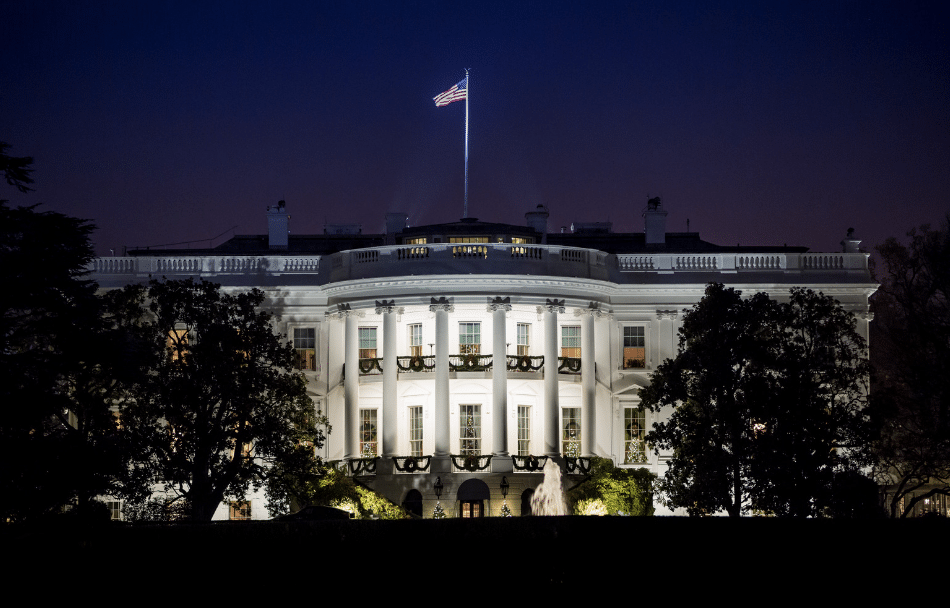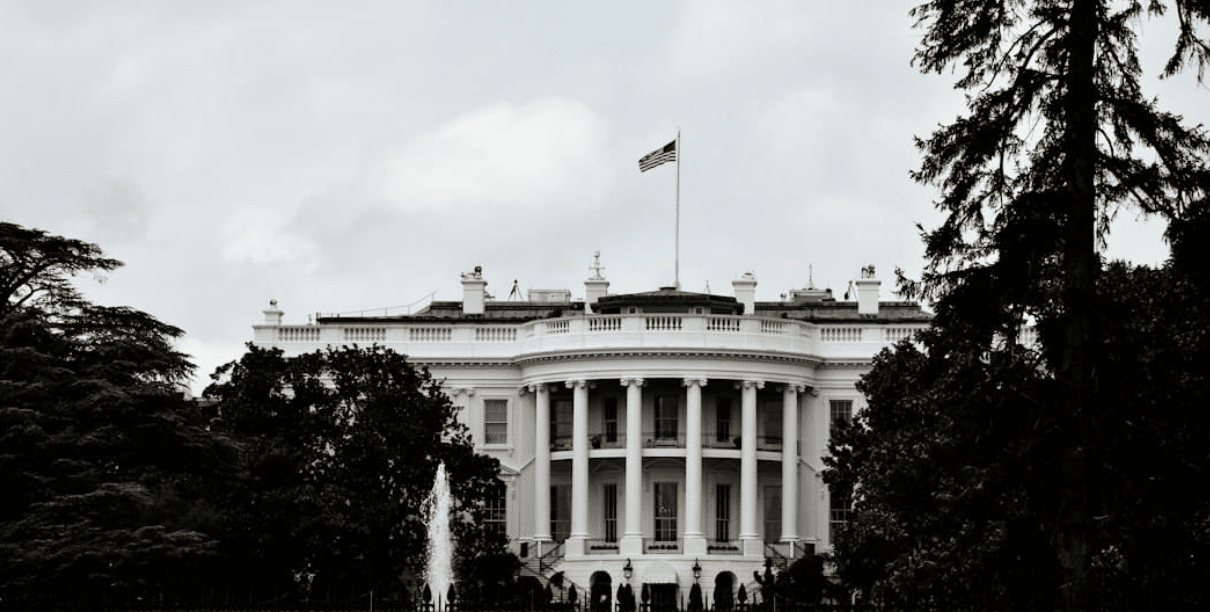Voters Think Congress is Underperforming
The November Emerson College national poll finds President Joe Biden at 50% disapproval and a 41% approval. Biden’s approval is down five points since the last Emerson national poll in September, when he was at 46% approval and 47% disapproval. The President’s current numbers have almost reversed from February when his approval was at 49% approval and 39% disapproval.
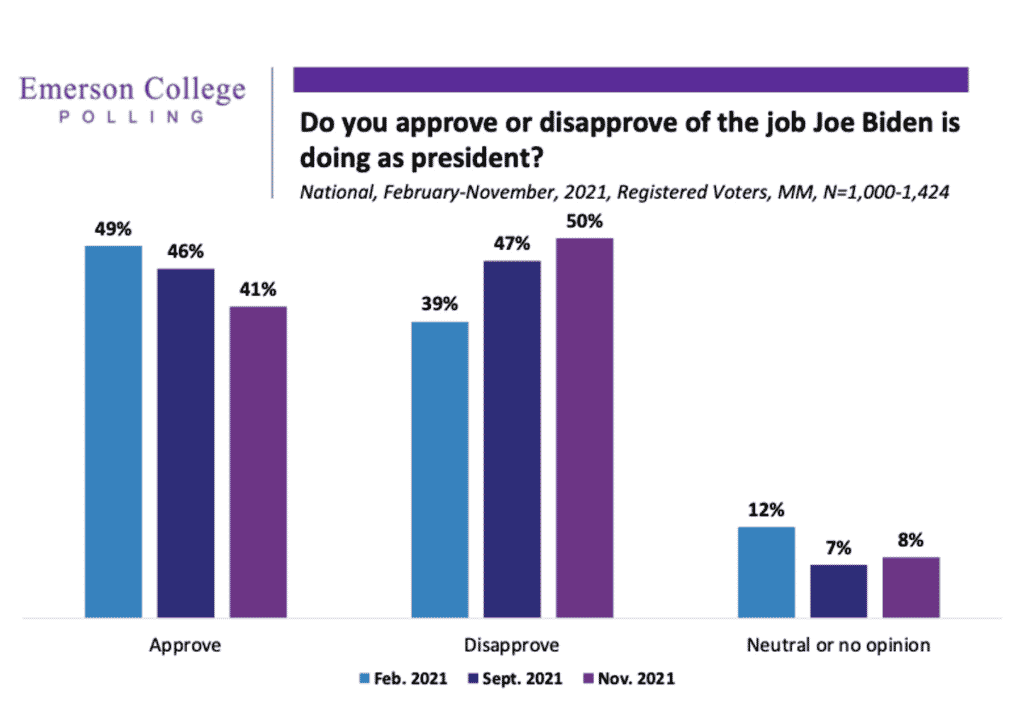
The drop in approval is greatest among Black/African-American voters, moving from 72% approval in February to 52% approval in November. Hispanic support dropped from 56% approval to 50% approval, and approval among White voters dropped from 43% to 38% approval.
Three years out from the 2024 presidential election, former President Donald Trump leads President Joe Biden by two points, 45% to 43%, in a hypothetical head-to-head matchup among registered voters. Eleven percent (11%) of voters said they would vote for someone else, and 1% were undecided.
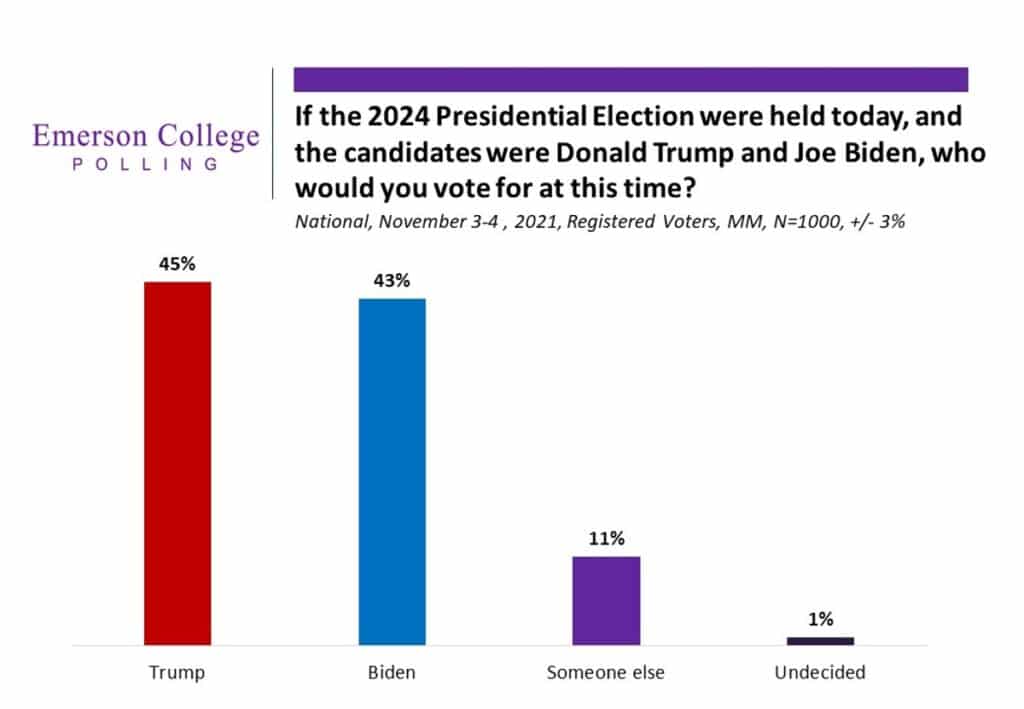
Emerson College Polling Director Spencer Kimball notes, “with over a tenth of voters voicing support for someone else in another Trump-Biden match-up, 2024 could perhaps witness a third party candidate reaching the required 15% support to get on the debate stage.”
Suburban voters are split: 42% support Donald Trump while 43% support Joe Biden. Rural voters break for Trump 62% to 30%, while urban voters opt for Biden 52% to 36%.
When voters were asked if they would vote for the Democratic or Republican congressional candidate if the 2022 midterm election were held today, a plurality (49%) of voters said they would vote for the Republican candidate, while 42% would vote Democrat, and 9% are undecided.
Voters were asked if they think Congress is achieving more or less than usual. A majority (62%) of voters say Congress is achieving less than usual, 20% say Congress is achieving more, and 19% are unsure. A majority of Republicans (77%) believe Congress is achieving less than usual, whereas Democrats are more split: 41% say less than usual, 37% say more than usual, and 22% are unsure or have no opinion.
When asked whether the “Build Back Better” social spending bill will have a positive impact on their lives based on what they know about it – 39% think it will have a negative impact on their lives; while 34% say it will have a positive impact, 16% no impact, and 11% are unsure.
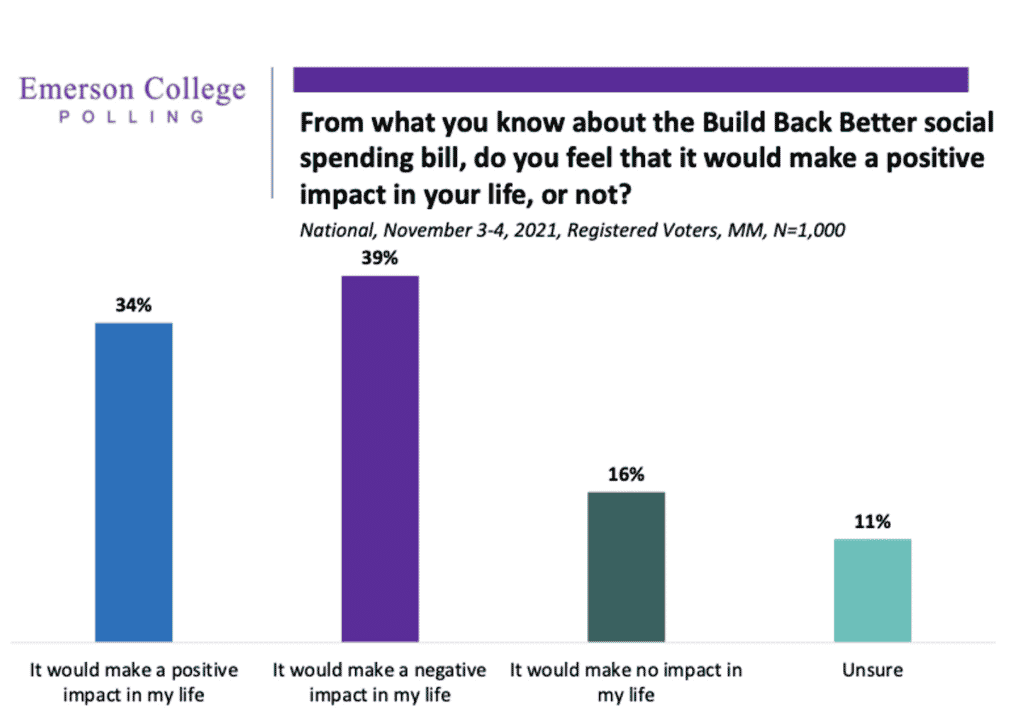
When asked if they support or oppose raising taxes on individuals earning greater than $400,000, a majority of respondents (61%) expressed support, and 31% were opposed. Support for this issue is highest among Democrats (81%), and Independents (56%). In contrast, a plurality (47%) of Republicans oppose raising taxes on individuals earning greater than $400,000, while 42% support this measure.
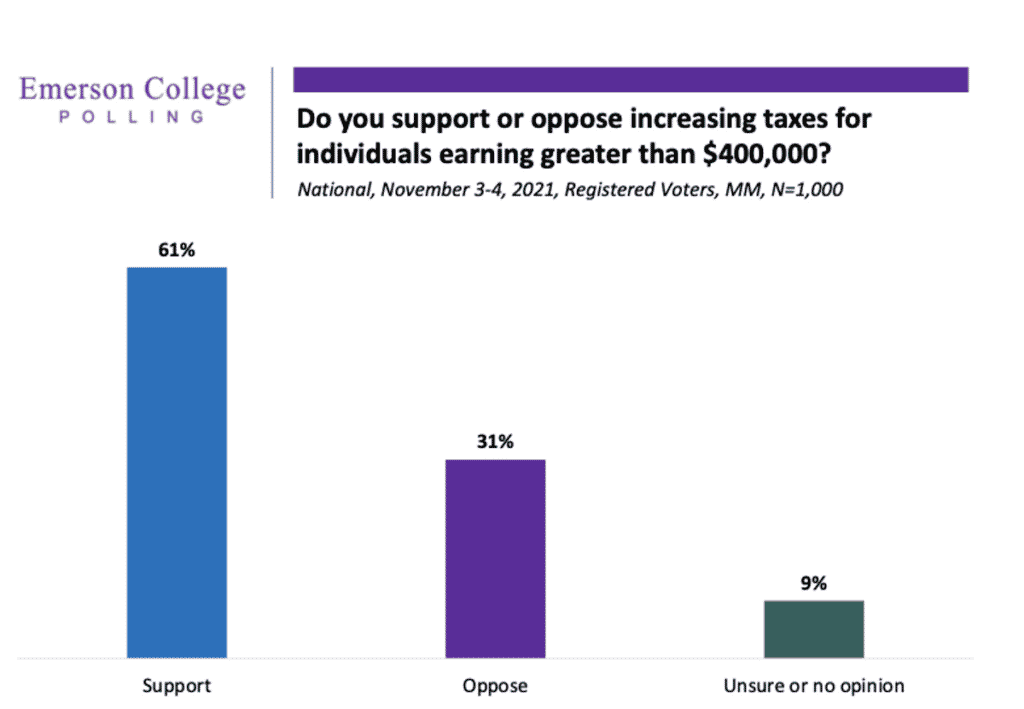
Voters are split on whether they think the current United States labor shortage is a result of high demands from laborers or high demands from employers: 40% think both are responsible, 34% believe the labor shortage is a result of higher demands from laborers, and 26% say it is a result of higher demands from employers.
A plurality (43%) of voters expect their holiday gifts and purchases to arrive on time, whereas 38% do not expect them to arrive on time and 19% were unsure.
About 1 in 4 voters, 28%, said they plan to travel this Thanksgiving.
Caller ID
The Emerson College national poll was conducted November 3-4, 2021. The sample consisted of registered voters in the United States, n=1,000 with a Credibility Interval (CI) similar to a poll’s margin of error (MOE) of +/- 3.0 percentage points. The data sets were weighted by age, education, race, party affiliation, and region based on 2020 turnout modeling. It is important to remember that subsets based on gender, age, party breakdown, ethnicity, and region carry with them higher margins of error, as the sample size is reduced. Data was collected using a cellphone sample of SMS-to-web, an online panel provided by Amazon MTurk, and an Interactive Voice Response (IVR) system of landlines.
Follow @EmersonPolling



